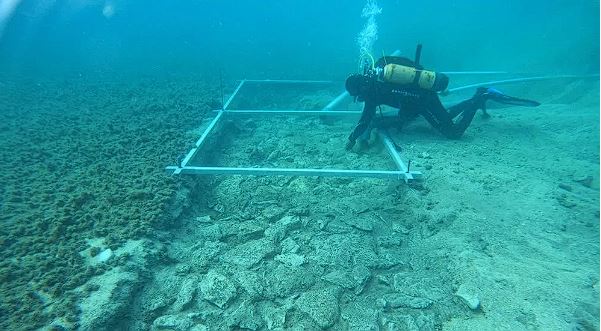The submerged ruins of a 7,000-year-old road are hiding underwater off the coast of the Croatian island of Korčula. The Neolithic structure once connected the island to an ancient, artificial landmass.
Archaeologists announced the discovery of the “strange structures” in a May 6 post on Facebook(opens in new tab), describing them as the remains of a roadway that are now submerged about 16 feet (5 meters) beneath the Adriatic Sea. The road consists of “carefully stacked stone plates” measuring roughly 13 feet (4 m) wide. The stone pavers had been buried by mud over the millennia. Archaeologists think the stone roadway was built by the Hvar, a lost maritime culture that resided in the area during the Neolithic period (6000 B.C. to circa 3000 B.C.).
“We [also] found late-Neolithic ornamented pottery, [a] stone axe, bone artifacts, flint knives and arrowheads,” Mate Parica(opens in new tab), an assistant professor in the Department of Archaeology at the University of Zadar in Croatia who took part in the excavation, told Live Science in an email. “[The] pottery findings help[ed] us to attribute this site to [the] Hvar culture.”
more at livescience.com
feature photo credit Mate Perica
video credit Sveučilište u Zadru Official YouTube Channel





































